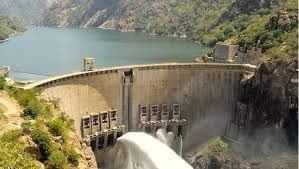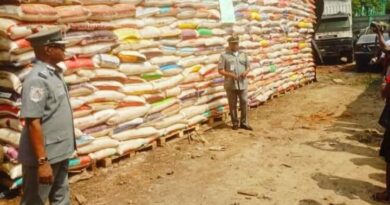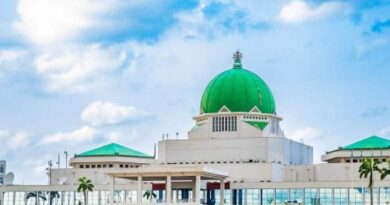Nigeria should soberly think before cutting off electricity supply to Niger republic —Concerned citizen warns
Nigeria supplies about 70% of electricity consumed by the Niger Republic. This comes via dedicated transmission lines from Kainji Dam to Niger Republic. It has been so for decades, just to discourage Niger from constructing a dam within their own catchment of the Niger Basin. The country pays for the power it consumes (which is said to be ridiculously low compared to what Nigerians pay). Under the current face-off, anything is possible. The generating capacity of Kainji Dam is 760MW. In Niger Republic, the Kandadji Dam of 130MW capacity, upstream Kainji Dam, has been completed, and it’s expected to become operational in 2025. Nigeria with a population of over 200 million people has a landmass of 923,768 square km, while Niger Republic with a population of 25.25 million people has a landmass of 1,270,000 square km. This means that Niger Republic has excess landmass should they decide to unilaterally divert the flow of River Niger, though this will negatively affect Benin Republic downstream Niger. In international diplomacy, national interest comes first. The possible distortion of the flow of River Niger from Niger down to Benin Republic could influence their (Benin) decision not to join the ECOWAS military adventure in Niger. Politics played around water resources is as dangerous as that around the liquid gold. Some years back when Ethiopia muted the idea of building a dam on River Nile upstream Egypt, hell was let loose as Egypt threatened to go to war against Ethiopia. Against all odds, Ethiopia went ahead to construct the gigantic *Grand Ethiopian Renaissance Dam, GERD*, saying even if it means perishing in the hands of Egypt, so be it.
*I feel I should first lay this foundation as I look at the implications on hydropower generation from both Kainji and Jebba Dams should the military junta in Niger Republic obstruct the flow of River Niger down to Nigeria*
During periods of hostilities, anything is possible. There are 9 countries in the West and Central Africa that are brought together in a union by the River Niger system (Rivers Niger & Benue). These countries are Guinea (Conakry), Mali, Niger, Benin Rep, Burkina Faso, Cote d’Ivoire and Nigeria (River Niger axis in West Africa) & Cameroon and Chad (River Benue axis in Central Africa). Of all the 9 countries, Nigeria is precariously located at the lowest point in the Basin. It is the discharge point through which River Niger empties into the Atlantic Ocean through the Gulf of Guinea. Therefore, Pollution and flooding incidents in these countries must come down to Nigeria, though it could get atinuated as it travels long distances down to Nigeria. There are many instruments, protocols or conventions that govern the equitable utilization of the resources of the Niger Basin among member countries, without injuring any of the riparian countries. Under normal circumstances, Niger Republic can’t carry out any intervention on the River Niger upstream of Nigeria without the approval or consent of Nigeria. In keeping with the protocols entered into by members countries, when some years back Mali (upstream of Niger Republic) wanted to construct some intake structures to take raw water to service about 6 municipal councils, they had to notify Nigeria (downstream Niger), giving all the technical attributes of structure and the quantity of water they wanted to abstract. This is to assure Nigeria that she will not suffer unduly if they take water from the River Niger. I was part of Nigeria’s *Technical Committee of Experts, TCE* that examined the designs before Mali was permitted to construct the water intake structures. Making reference to the Kandadji Dam in Niger Republic, it was after Nigeria agreed, being satisfied with the design details, that Niger Republic commenced the construction of the Dam, now completed.
There have been palpable fears in certain quarters in Nigeria that the military junta in Niger Republic might consider obstructing the flow of River Niger down to Nigeria. This couldn’t have been contemplated under normal circumstances because there are protocols within the Niger Basin Authority (for the entire 9 member countries) and also under the *Nigeria-Niger Joint Commission for Cooperation (N-NJCC)*. I have played active roles in the two bodies on behalf of Nigeria.
Every year, Nigeria experiences two types of flood: *White Flood & Black Flood*. Both floods are indispensable in power generation from Nigeria’s two Dams on River Niger. *White Flood* occurs during the rainy season in Nigeria (April – October). During this period, the flood generated during the rainy season from within Nigeria is more than enough to satisfy the energy requirements of the Dams for power generation. As a matter of fact, too much of this flood is spilled and *’wasted’* downstream Kainji and Jebba Dams in the form of flood disasters. Shortly after, the Dams are in dire need of flood to power the turbines to generate power when rainfall has ceased in Nigeria. This time around, the *Black Flood* becomes handy. Mali has the largest Inland Delta in West Africa. It takes several months to get filled up during the rainy season. By the month of December of every year, the black flood gradually flows down to *Niger Republic*, through Benin Republic down to Nigeria. It’s this *Black Flood* that sustains the hydropower generation in both Kainji and Jebba Dams between December and April every year before the rainy season commences in Nigeria. Any military action taken by the ECOWAS Joint Military Task Force against Niger Republic may have serious ugly consequences on Nigeria, both in the power sector and humanitarian crisis. It’s on this wise that the Northern Senators Forum (NSF) asked President Bola Ahmed Tinubu to exhaust all diplomatic means in resolving the crisis in Niger Republic. Suleiman Kawu, the spokesperson of the Forum, who spoke in Abuja on Friday, 5th August, warned that deploying Nigerian troops to the Niger Republic will hurt seven northern states: Sokoto, Kebbi, Katsina, Zamfara, Jigawa, Yobe and Borno—sharing borders with the country.




